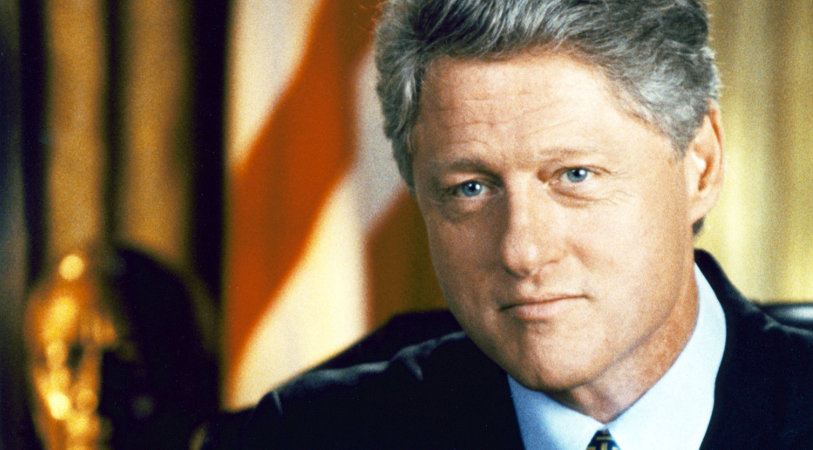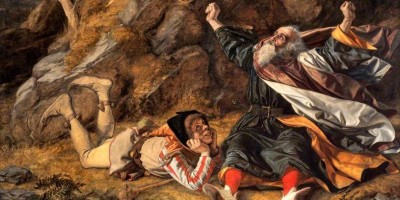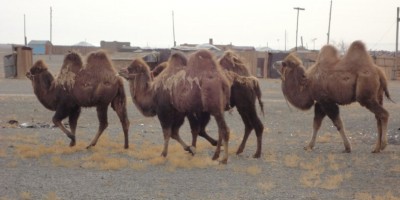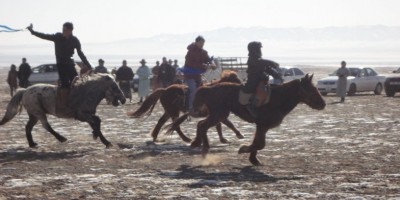There has been so much happening in Mongolia the last few weeks. Seriously. If you have been way too self-absorbed to pay attention, as I have, you have missed some interesting stuff. Last week, for example, Mongolia played host to the fourth meeting of the Community of Democracies, which began the day after I left Ulaanbaatar after nearly three weeks in the city. So, somehow I missed that, too. But, this is what the “Mongol List” is for, to catch us up on the interesting things that we may have missed.
1. A vote of no strategy – Ah, it must be the start of a new session of parliament, because the opposition party demanded a vote of no confidence against the standing government at the end of April. I need to do some research on this, but I am fairly certain this happens at least once a year in Mongolian politics no matter which party is in power or opposition. The MPRP successfully dissolved Prime Minister (now President) Elbegdorj’s government in the winter of 2006, but that was a rare case in which the opposition party actually had the votes to succeed. Given the state of the economy and self-inflicted wounds caused by the row over Oyu Tolgoi, current Prime Minister Altankhuyag actually should have been politically vulnerable. Yet, he survived his test with his coalition intact and 46 out 69 MPs present voting in his favor.1, 2 Not sure what the MPP’s strategic thinking behind calling for the vote was, but they succeeded in removing any doubt over whether the PM is still firmly in control of his government. I doubt that was their aim, though.
2. S. Bayartsogt – The scandal involving now former Deputy of Speaker Bayartsogt and his undisclosed offshore company and Swiss account may not have been explosive, but it continued to smoulder throughout the month of April. After several false starts in parliament to discuss the issue, he was officially removed from his post as Deputy Speaker. The local coverage of the issue also picked up in the middle of April with several front page and page two articles reporting on the many opinions of other MPs on the issue. Mr. Bayartsogt is no longer listed on the parliament website as a Deputy Speaker (see here), so his removal is fully complete. Still no indication of whether the political pressure is mounting enough for him to also step down as an MP, but the cynical view at this point is that is not likely to happen. Stepping down would remove his legal immunity as a seated legislator. If he did step down, though, he would rise a couple notches in my esteem for setting a very important precedent for the greater good.
3. A teachable moment – President Elbegdorj is an active tweeter, and as president one might argue he has a responsibility to provide the nation “teachable moments.” In a recent exchange between the president and MP Kh. Battulga that started with a disagreement over sports and ended with snarky comments about former Deputy Speaker Bayartsogt and the inaction of parliament on the issue, President Elbegdorj used the verb “гүлдийлдэх” (guldiildekh) to describe the slow progress. Well, it turns out, this is not a commonly used word, and even Mr. Battulga responded by asking what the heck the president’s smack down meant. Zuunii Medee provided in-depth coverage of the mysterious word in their April 22 issue by interviewing an expert on the Mongolian language. The explanation the expert gave is that it is a sort of lethargic and cumbersome movement like a snake that has swallowed a field mouse.3 Bravo to the president for improving the nation’s collective vocabulary with such an aptly descriptive term.

4. Speaking of Twitter – A recent interview with Bill Clinton on the political satire show “The Colbert Report” included the former president’s oft repeated wish to someday ride a horse in Mongolia. In the interview here, he actually specifically said the Gobi in Mongolia. During the interview, the show’s host Stephen Colbert taught President Clinton to tweet, and the former president has been tweeting under the handle @billclinton since then. I have taken to doing what I can to persuade @billclinton to make a date with Mongolia. If enough people express their desire to have him come to Mongolia, the rules of social media suggest he’ll be unable to decline without looking totally lame. And, avoiding lameness is a powerful motivator in the social media sphere. Or, so I have heard. I’m too cool to worry about such things. Nevertheless, I’ll be tweeting reasons for him to visit Mongolia over the coming weeks using the hashtag #Clinton2Mongolia, and I hope others will join the effort. Let’s bring Bill Clinton to this wonderful country.
5. Speaking of Presidents – The presidential election is just around the corner (June 26), and the MPP has finally declared a candidate to challenge incumbent Ts. Elbegdorj with the selection of Member of Parliament B. Bat-Erdene. As a former wrestler in a country full of wrestling fanatics, Mr. Bat-Erdene brings established celebrity to his candidacy. He also has been an MP since 2004, and held the standing committee on legal affairs chairmanship from 2009 to 2010 according to his official bio on the parliament website here. He represents the 18th parliamentary district which encompasses Khentii province, having garnered the most votes in the district in the last election with 37.9 percent of ballots cast.4 In the coming weeks everyone will have a chance to see if he is able to articulate a compelling argument for dropping President Elbegdorj in favor of his leadership over the next four years. Julian Dierkes and Mendee over at “Mongolia Today” provide a bit more information about the presidential election here and here. More on this in the coming weeks.
6. Mongolia and Rio – It is too soon to say whether the relationship between the government and Rio Tinto is truly on the mend, but there are signs of hope as the Oyu Tolgoi (OT) mine inches towards full commercial production this summer. As reported by Reuters, the general sentiment from the investment community in attendance at the Mongolia Investment Summit in London April 16-18 was that the government is keen to reverse the damage done by its public dispute with Rio Tinto over renegotiating the OT investment agreement and the project’s management.5 On the heels of the summit, another sign of improvement in the situation was Rio Tinto’s announcement at the end of April that Mr. B. Bold was appointed the new president of its international copper group.6 Mr. Bold was previously a financier with JP Morgan, the CEO of Newcom Group, and a special adviser to Oyu Tolgoi.7 It is a significant appointment, because it seems likely that his selection is driven by a critical need to eventually replace Oyu Tolgoi’s top management with Mongolians. It is also significant to see Mongolia represented by a native son in such a prestigious international position.
7. Brand Mongolia – Finally, to round out this “Mongol List,” a look at a stunning statistic from the Oxford Business Group’s (OBG) “The Report: Mongolia 2013.” According to the report, the WTO found in 2011 that Mongolia spent just USD 0.30 in tourism promotion for every international arrival in the country as compared to an average expenditure of USD 5.25 per arrival amongst the other 175 tourist destinations in the survey.8 The big talk in the news and social media sphere in March (besides the government and Rio Tinto spat) was the idea of creating a Mongolia specific brand for the international market like French wine or Canadian maple syrup. The UB Post carried a lengthy article on the topic here, but there was also significant chatter in the local daily newspapers and on Twitter regarding how Mongolia should go about creating its brand. The statistic from OBG provides a pretty good argument for Mongolia making Mongolia its brand. For goodness sake, the country is spending basically nothing promoting itself to tourists, and the OBG report provides a compelling argument that promotion that leads to increased tourism has the potential of a tremendous return on investment. Take this passage:
“…Japanese tourists tend to focus on smaller routes and shorter stays of between three and seven days, but spend the most, an estimated $200 per day in total average. Tourists from the US spend slightly less, between $150 and $170 per day, although the length of the their stay is longer, at between two and three weeks. Meanwhile, Western Europeans spend less (roughly $100 daily), however, they do tend to venture further afield. Koreans, Taiwanese, and Southeast Asians generate less revenue, yet they remain more profitable than Chinese and Russian tourists, with less than $50 per day in country spend.”9
This seems like another example in which a complimentary strategic approach to tourism and mining investment could produce more bang for Mongolia’s buck. As covered here, the government should be making infrastructure investments that simultaneously improve business conditions for the mining industry and other sectors such as tourism whenever possible. Mongolia needs to begin work on repairing/building its international reputation among investors, and strategic promotion in the right markets could do that while also attracting lucrative tourist arrivals. As the saying goes, Mongolia could “shoot two rabbits with one arrow.” Seems like a no-brainer investment. So, instead of a Mongolian brand, how about Brand Mongolia? Remember those “Incredible India” commercials from a few years ago? How about “Magnificent Mongolia”? Just a thought.
Footnotes
1. “Н.Алтанхуяг огцорсонгүй”, Sonin.mn, http://www.sonin.mn/news/politics-economy/15569, 2013-04-25.
2. Г. Билгүүн, “Ерөнхий сайдыг огцруулах шаардлагагүй гэж үзлээ”, http://news.gogo.mn/mr/121808, 2013-04-25.
3. З. Хүрэл, “Гүлдийлдсэн жиргээний тухай…”, Зууны Мэдээ, 2013-04-22, pg. 3.
4. See “УИХ-н Сонгууль – 2012 он”, Монгол улсын сонгуулийн ерөнхий хороо, http://www.gec.gov.mn/parliamentary_election/310/41, (accessed 2013-05-05).
5. Clara Ferreira-Marques, “UPDATE 2-Mongolia woos back miners after investment slump”, Reuters, http://www.reuters.com/article/2013/04/17/mongolia-mining-idUSL5N0D42HO20130417, 2013-04-17.
6. Ц. Болормаа, “Б. Болд ‘Rio Tinto’-гийн Зэсийн группийг удирдана”, Өнөөдөр, 2013-04-25, pg. 1.
7. Ibid.
8. “Utilising Strengths: Adapting to new trends in the market,” in the Oxford Business Group The Report: Mongolia 2013, pg. 198.
9. Ibid, pg. 197.



